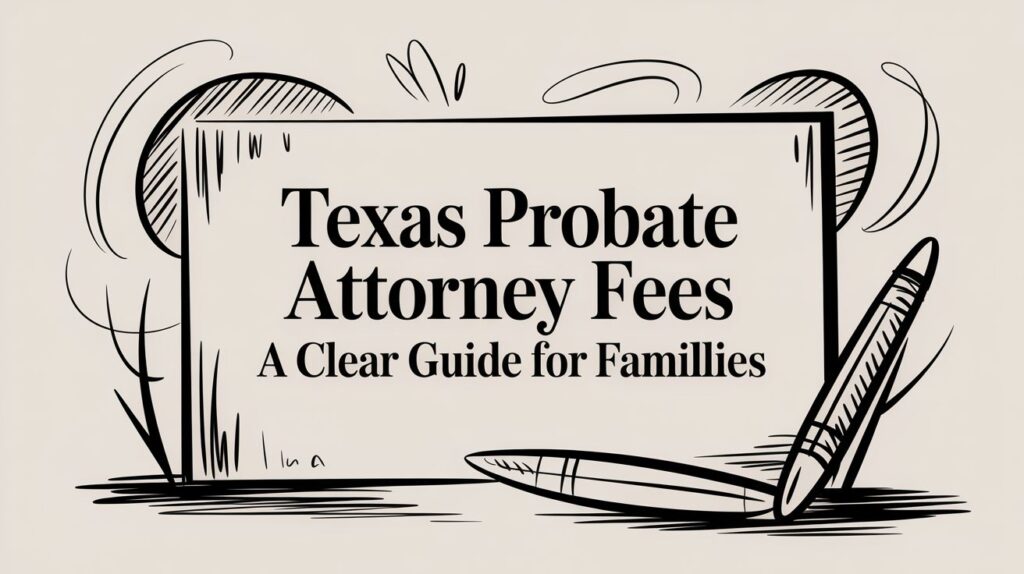Probate serves as the legal mechanism through which the assets and estate of a deceased individual are distributed according to the law. It plays a crucial role in settling the deceased’s affairs, ensuring their debts are settled, and their remaining assets are transferred to rightful heirs or beneficiaries. In essence, probate provides a structured framework for managing the deceased’s estate and facilitating the transfer of ownership of assets.
Understanding probate laws in Texas is paramount for anyone involved in the probate process, whether as an executor, beneficiary, or creditor. Texas probate laws outline the procedures, requirements, and regulations governing the administration of estates within the state. With clear knowledge of these laws, individuals can navigate the probate process effectively, ensuring that the deceased’s wishes are honored and the distribution of assets proceeds smoothly and efficiently.
This guide will delve into the basics of Texas probate laws, providing insights into the key concepts, procedures, and considerations involved. By unlocking the fundamentals of probate in Texas, we aim to empower individuals with the knowledge and understanding necessary to navigate this essential legal process confidently and clearly.
Intestacy vs. Wills in Texas: Key Differences in Estate Distribution
Intestacy occurs when a person dies without a valid will. It refers to an individual passing away without leaving behind a legally enforceable document detailing how their assets should be distributed among heirs or beneficiaries. When intestacy occurs, the distribution of the deceased’s estate is governed by the state’s intestacy laws where the individual resided at the time of their death.
In Texas, intestacy laws provide a specific order of inheritance, dictating how the deceased’s assets are distributed among surviving relatives. These laws prioritize certain family members over others, ensuring that assets pass to close relatives in a predetermined order. Typically, intestacy laws favor spouses, children, parents, and siblings of the deceased, with assets distributed among them according to specified proportions based on their relationship to the deceased.
For example, if the deceased had a surviving spouse and children, Texas intestacy laws generally allocate a portion of the estate to the surviving spouse, with the remainder divided among the children. If there are no surviving children, the spouse may inherit the entire estate, subject to certain conditions outlined in the law.
In contrast to intestacy, wills are legal documents that allow individuals to specify how they want their assets to be distributed after their death. Wills allow individuals to express their wishes regarding the distribution of their estate, including who should inherit specific assets and in what proportions. By drafting a will, individuals can ensure that their assets are distributed according to their preferences rather than relying on the default provisions of intestacy laws.
The Probate Process in Texas
The probate process in Texas involves several steps to settle the estate of a deceased individual. The process begins with filing a petition with the probate court, which may include identifying information about the deceased, details about the estate, and the names of potential heirs or beneficiaries. The court will appoint a personal representative, often called an executor if named in the will or an administrator if there is no will (intestate). The personal representative is responsible for managing the estate, gathering and inventorying assets, paying debts and taxes, and distributing assets to beneficiaries.
The personal representative is tasked with identifying and notifying heirs and beneficiaries of the probate proceedings, typically locating and contacting individuals named in the deceased’s will or potential heirs under intestacy laws. They must settle the deceased’s debts and taxes using estate assets, including outstanding bills, medical expenses, funeral costs, and any applicable taxes the estate owes. Once debts and taxes have been paid, the personal representative is responsible for distributing the remaining assets to the designated beneficiaries, following the instructions provided in the deceased’s will if one exists or Texas intestacy laws, which prioritize close relatives.
The court oversees the probate process to ensure the estate is settled according to Texas law and protects the rights of heirs and creditors. Consulting with an experienced probate attorney can provide invaluable guidance and assistance throughout the probate proceedings.
Determining If You Need Probate
Probate is a legal process typically necessary when a deceased person owns assets solely in their name. The size and complexity of the estate, such as real estate, vehicles, bank accounts, investments, and personal belongings, play a crucial role in determining if probate is necessary. Assets held jointly with rights of survivorship or with designated beneficiaries, such as life insurance policies, retirement accounts, and payable-on-death (POD) or transfer-on-death (TOD) accounts, typically bypass probate.
Probate provides a structured process for settling debts and addressing creditor claims, ensuring that remaining assets are distributed to beneficiaries free from creditor claims. Real estate owned solely by the deceased typically requires probate for proper transfer to heirs or beneficiaries, as without probate, clear title to real property cannot be established.
Family dynamics and potential disputes among potential heirs may also necessitate probate to resolve conflicts and ensure a fair distribution of assets. Probate provides a legal framework for addressing disputes and challenges to the estate’s administration.
In Texas, specific legal requirements and deadlines are associated with probate proceedings, which can result in delays and complications if not initiated within the required timeframe or complied with formalities. Understanding the factors determining the need for probate can help individuals make informed decisions about estate administration. Consulting with a qualified probate attorney can provide guidance tailored to the specific circumstances of the estate, ensuring an efficient and effective probate process.
Small Estate Affidavit (Optional)
Texas offers a Small Estate Affidavit as an alternative to the traditional probate process for estates of modest value. This legal document allows heirs to claim assets without going through the formal probate process. The threshold in Texas is typically $75,000 for personal property and $200,000 for real estate. The Small Estate Affidavit process is relatively straightforward compared to full probate proceedings, with the following steps: eligibility determination, preparation of the affidavit, filing the affidavit, and approval and asset transfer.
The benefits of the Small Estate Affidavit include time and cost savings, simplified administration, and privacy and efficiency. The process is faster and less expensive than full probate proceedings, avoiding court hearings and attorney fees associated with formal probate. It is less complex and bureaucratic than probate, making it accessible to individuals with smaller estates and fewer assets. Additionally, the affidavit process needs to be more formal, allowing for a more private and efficient transfer of assets without the extensive paperwork and delays of probate.
However, consulting a qualified probate attorney can help determine the best approach for administering the estate and ensuring compliance with Texas probate laws. While the Small Estate Affidavit may be a convenient option for some estates, it may only suit some situations.
Benefits of Having a Will
A valid will offers numerous advantages, including control over asset distribution, naming a preferred personal representative, minimizing potential disputes among heirs, and providing guardship arrangements for minor children. A will lets you specify who will inherit your property, money, investments, and personal belongings upon your death, ensuring that your estate plan reflects your unique preferences and priorities.
A will also allows you to appoint an executor or personal representative to manage your estate and ensure your wishes are fulfilled as outlined in the will. This person is responsible for inventorying assets, paying debts and taxes, and distributing assets to beneficiaries. By selecting a trusted individual to serve as your executor, you can have confidence that your estate will be handled competently and following your instructions.
A will also help minimize potential disputes among heirs, as it provides clarity and transparency regarding your intentions, reducing the likelihood of disagreements and ensuring a harmonious estate distribution. For parents of minor children, a will allows them to designate a guardian to care for them in the event of their death, retaining control over who will assume parental responsibility for them.
In summary, having a valid will is essential for anyone who wants to maintain control over their assets, ensure their wishes are carried out, and minimize potential disputes among heirs. By creating a comprehensive will with the assistance of a qualified estate planning attorney, you can protect your legacy and provide for your loved ones following your wishes.
Finding Help with Probate
The probate process can be complex, especially for estates with substantial assets or unique circumstances. Consulting with a qualified attorney experienced in probate law ensures a smooth and efficient process. A probate attorney can provide expert guidance, explaining each step, outlining rights and responsibilities, and helping navigate potential challenges. They can ensure that probate proceedings comply with state laws and that all necessary documents are filed correctly and promptly.
An experienced probate attorney can assess your circumstances and provide tailored advice to address your concerns and achieve your objectives. They can solve complex financial assets, contested wills, or estate tax issues. Probate proceedings may sometimes involve court appearances, especially if disputes arise among beneficiaries or creditors. With their knowledge of probate law and courtroom experience, they can present compelling arguments on your behalf and work towards a favorable resolution.
Finding the right probate attorney can be simplified using online resources and local bar associations. State bar associations offer directories of attorneys specializing in probate and estate planning, allowing you to search for professionals based on location and expertise. Online legal platforms and directories provide reviews and ratings from past clients, helping you make informed decisions when selecting an attorney.
In conclusion, seeking assistance from a probate attorney is essential for anyone navigating the probate process, especially those dealing with complex estates or contentious issues. With their expertise and guidance, you can confidently navigate the probate proceedings, ensuring that your loved one’s assets are distributed according to their wishes and that your rights are protected at every step.








